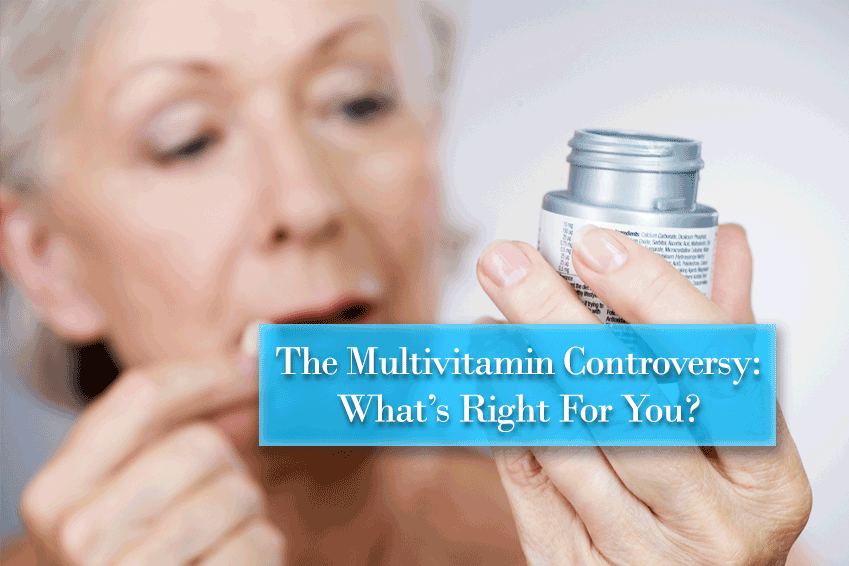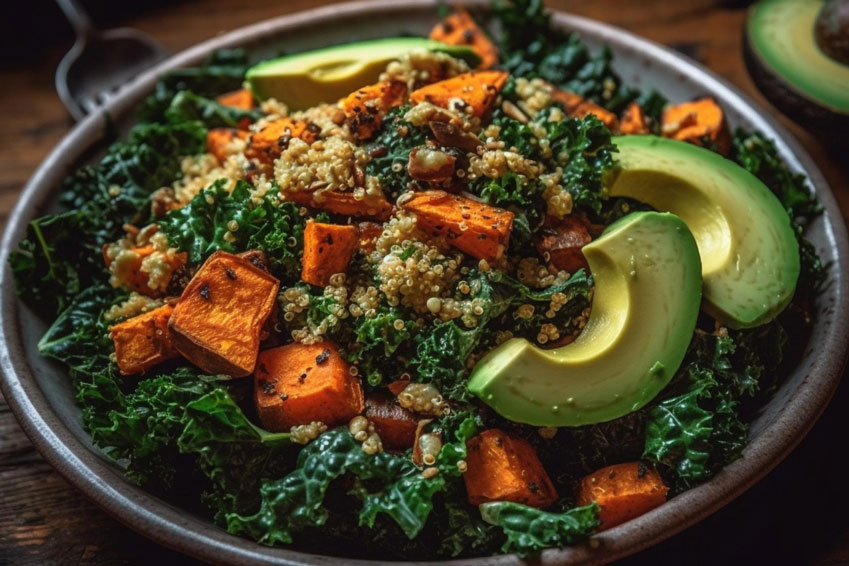by Clifford Yurman
For decades, health professionals, friends, relatives, colleagues, and advertisers have been telling us that a once-daily multivitamin can keep you healthier, and help you live longer. But disagreement over the safety and efficacy of vitamins still exists. Here are views from both sides of the argument.
It is true that today’s average American diet is affecting our life expectancy and quality of life. Too much processed food consumption, along with cutting down on fresh fruits and vegetables, is creating a health care crisis.
According to the NIH, over a third of Americans are now considered to be clinically obese, and one in twenty American are considered to have “extreme obesity”. Another largely preventable, but damaging disease, Type 2 diabetes, affects some 27-million Americans and is growing, often due to poor diet and lack of exercise.
Aware of the dangers, consumers want an easy fix to help make up for nutritional deficit. Taking a multivitamin, we’ve been told, is a great insurance policy. By filling in the gaps in our intake of nutrients, we’re led to believe, we can continue to eat what we eat, and still stay healthy. But is the multivitamin a panacea, or a scam?
An article from NutritionFacts.org by Michael Greger M.D. reviews the inconclusive nature of recent research, and the challenges of studying the effectiveness of vitamins in various populations.
Reasons not to take multivitamins
When deciding whether to take a multivitamin, here are some generally accepted considerations that may lead you to say “no” to vitamin supplements…
Poor diet is poor diet – When we do not eat the right things, no vitamin pill is going to compensate for that.
The human body is complex – Some scientists believe our bodies do not benefit from many vitamins unless they are absorbed naturally from the foods we eat.
Product quality – The majority of the supplement industry continues to go unregulated – so who knows what’s in these pills and potions, anyway?
How much is enough? Ingredients in multivitamins such as beta-carotene, Vitamin E, and possibly high doses of Vitamin A could actually increase the risk of death. It is difficult to gauge just how much is too much for individuals.
Vitamins are expensive! The monthly cost of keeping that vitamin bottle on your shelf could cost you hundreds a year. Might you be better off buying and preparing more healthy foods with that money?
A recent article on the Johns Hopkins University website reports that a group of venerable doctors at JHU feel that vitamins are, at best, “a waste of money.”
The Softer Side of Multivitamins
While many scientists question the value of vitamins, an article posted on the Harvard | T.H. Chan School of Public Health website cautiously recommends multivitamin supplements. Here’s why…
Some extra vitamin D may add an extra health boost. Millions of patients leave their doctor appointments with the news they are suffering from a Vitamin D deficiency – all thanks to sedentary indoor jobs, too much sunscreen, and poor diet. D is one of the vitamins that actually can absorb quite well from a pill. Vitamin D can lower risk of colon and other cancers and diseases.
True, a healthy diet should provide nearly all the nutrients you need. But many people don’t eat the healthiest of diets. That’s why a multivitamin can possibly help fill in the gaps when used in moderation, and may have added health benefits, according to Harvard.
Folic acid, commonly added to multivitamins, can be very beneficial. It helps prevent neural tube defects in newborns (if women take it before they become pregnant). Folic acid is also linked to lowered risk of heart attacks, colon and breast cancer.
Do Vitamins Right!
Harvard offers this advice…
1. Eat a healthy diet. We want a diet high in fresh fruits, vegetables and nuts, with the meat and processed grains cut to a minimum. Remember, no vitamins will compensate for a very poor diet.
2. Take a multivitamin (yes, they recommend it).
3. Vitamin D is key. Get some sun, and watch your Vitamin D levels when you get your annual physical. Rely on a supplement if the numbers are low.
4. Avoid supplements marketed as “Mega Vitamins”. Too much of certain vitamins can cause damage to your body.
5. Avoid “super” supplements. Hard-sell supplement pitches often include tantalizing claims. Let the buyer beware – this means you!
Do your own research, seek the advice of doctors, dentists and reputable studies and articles, and make smart choices. Then decide for yourself if you think a multivitamin will help you live a better life.


















